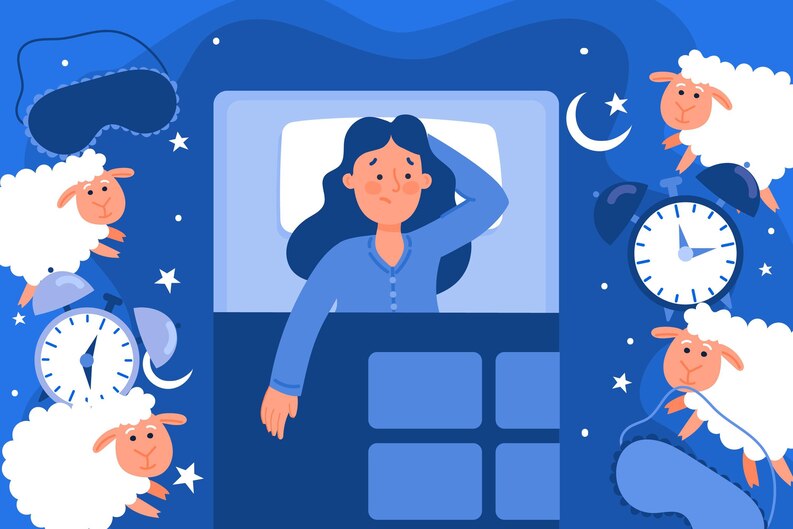Sleep, a seemingly simple act, holds incredible power over our physical and mental well-being. Getting a good night’s rest is crucial for overall health, as it plays a vital role in various bodily functions and cognitive processes. In this comprehensive article, we will explore the importance of sleep, its impact on our daily lives, and provide valuable tips to achieve a restful slumber.
The Importance of Sleep
Sleep is not merely a time of rest for the body; it is a period of intense activity for the brain. During sleep, the brain consolidates memories, processes emotions, and repairs tissues. Lack of sleep can impair cognitive functions, memory retention, and emotional regulation, leading to irritability, reduced productivity, and a weakened immune system.

The Physical Benefits of Sleep
Adequate sleep contributes significantly to physical health. It allows the body to repair and rejuvenate, promoting muscle growth, tissue repair, and hormone regulation. Moreover, sleep plays a crucial role in maintaining a healthy weight, as it affects the balance of hunger hormones and helps regulate metabolism.
Sleep is essential for good health, and it has many physical benefits. Here are some of the physical benefits of sleep:
- Improved immune function: Sleep helps your body produce white blood cells, which fight off infection. When you don’t get enough sleep, your immune system is weakened, making you more susceptible to illness.
- Reduced inflammation: Sleep helps reduce inflammation throughout your body. Inflammation is linked to many chronic diseases, such as heart disease, stroke, and diabetes.
- Healthy weight: Sleep helps regulate your appetite and metabolism. When you don’t get enough sleep, you’re more likely to overeat and gain weight.
- Stronger bones and muscles: Sleep helps your body produce growth hormones essential for building and repairing bones and muscles.
- Sharper memory and thinking skills: Sleep helps consolidate memories and improve cognitive function. When you don’t get enough sleep, you’re more likely to have trouble concentrating, making decisions, and learning new things.
- Reduced risk of accidents: Sleepiness can impair your judgment and coordination, increasing your risk of accidents. Drowsy driving is a major cause of car accidents, and it’s estimated that drowsy drivers cause up to 100,000 accidents each year.
In addition to these physical benefits, sleep also has a number of mental and emotional benefits. Sleep helps improve mood, reduce stress, and boost creativity.
Sleep and Mental Health
Quality sleep is closely linked to mental well-being. Chronic sleep deprivation has been associated with an increased risk of anxiety disorders, depression, and mood swings. Conversely, prioritizing sleep can enhance emotional resilience and improve overall mental health.
Understanding Sleep Cycles
Sleep is a dynamic process that occurs in cycles. Each cycle consists of four stages: NREM (non-rapid eye movement) stages 1, 2, and 3, and REM (rapid eye movement) sleep. NREM stages gradually lead to deep sleep, while REM sleep is when most dreaming occurs. A complete sleep cycle typically lasts around 90 minutes, and the average adult experiences four to five cycles each night.

Tips for a Good Night’s Rest
Sure, here are some unique tips for better sleep:
- Try aromatherapy. Lavender is a popular essential oil that can help promote sleep. You can diffuse lavender oil in your bedroom or add a few drops to your bathwater.
- Listen to calming music. There are many different types of calming music that can help you relax and fall asleep. Try listening to classical music, nature sounds, or binaural beats.
- Meditate before bed. Meditation can help you relax your mind and body, making it easier to fall asleep. There are many different types of meditation, so find one that works for you.
- Do some gentle stretching. Gentle stretching can help relax your muscles and prepare your body for sleep. Avoid vigorous exercise too close to bedtime, as this can make it harder to fall asleep.
- Keep a sleep journal. A sleep journal can help you track your sleep habits and identify any patterns that may be interfering with your sleep. This can help you make changes to your sleep routine to improve your sleep quality.

These are just a few unique tips to help you get a better night’s sleep. If you’re still having trouble sleeping, talk to your doctor. They can help you rule out any underlying medical conditions and recommend additional strategies to improve your sleep.
Conclusion
In conclusion, the power of sleep cannot be underestimated. It is a fundamental pillar of health and well-being, impacting both our physical and mental functioning. By understanding the importance of sleep and adopting healthy sleep habits, we can unlock its incredible benefits and enjoy a more vibrant and fulfilling life.
We hope these tips help you get a good night’s sleep!








